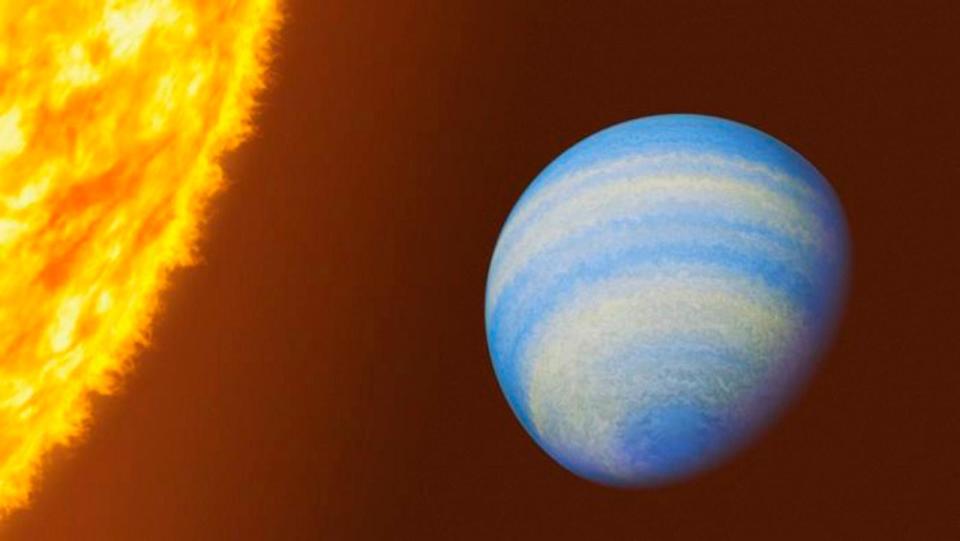Scientists discover Jupiter-like exoplanet that smells of rotten eggs
Scientists made an exciting -- and pungent -- announcement about a nearby exoplanet this week, finding that a planetary body with a likeness to Jupiter smells of rotten eggs.
Analyzing data gathered by the James Webb Space Telescope, scientists discovered that an exoplanet named HD 189733 b contains hydrogen sulfide, a colorless gas emitted by decaying organic matter with a strong, egg-like odor.
In addition to hydrogen sulfide, researchers found carbon dioxide, oxygen, water and heavy metals in the unique exoplanet's atmosphere, according to the study published in Nature on Monday.
MORE: NASA's Mars simulator crew emerged after 378 days: What did they learn?
"Hydrogen sulfide is a major molecule that we didn't know was there. We predicted it would be, and we know it's in Jupiter, but we hadn't really detected it outside the solar system," Guangwei Fu, an astrophysicist at Johns Hopkins, who led the research, said in a press release.

Exoplanet HD 189733 b was initially discovered in 2005 and is located approximately 65 light years from Earth in the constellation Vulpecula, according to the study.
Known for extreme temperatures and "vicious weather," scientists dubbed the exoplanet as "hot Jupiter" because it has "scorching temperatures of 1,700 degrees Fahrenheit and is notorious for vicious weather, including raining glass that blows sideways on winds of 5,000 mph," according to the study.
MORE: New NASA photos show fiery eruptions from volcanos on Jupiter's moon
"We're not looking for life on this planet because it's way too hot, but finding hydrogen sulfide is a stepping stone for finding this molecule on other planets and gaining more understanding of how different types of planets form," Fu said.
Looking to the future, Fu said his research team will track sulfur in more exoplanets to analyze if the presence of high levels of the chemical compound is related to their placement in space.
"We want to know how these kinds of planets got there, and understanding their atmospheric composition will help us answer that question," Fu said.
Scientists discover Jupiter-like exoplanet that smells of rotten eggs originally appeared on abcnews.go.com

 Yahoo News
Yahoo News 